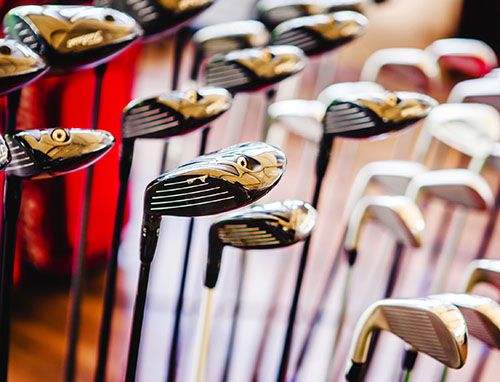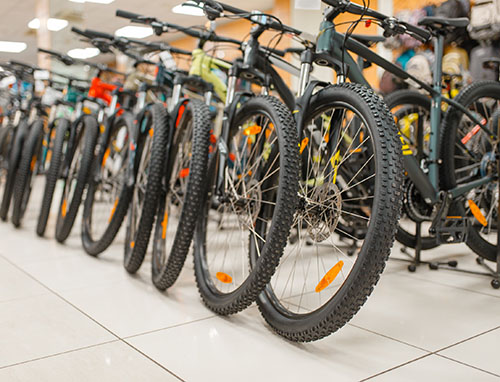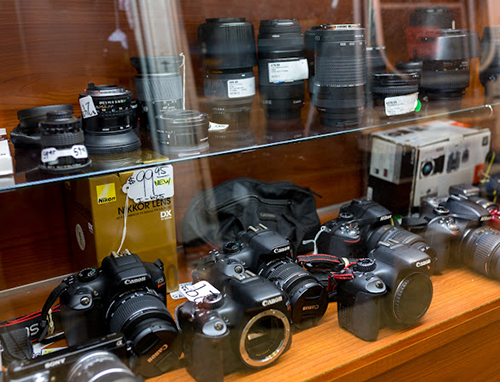
Introduction to pawning sporting goods
You might be surprised to know that pawning your sporting goods can be a practical and lucrative way to access quick cash when you need it most. Whether you're facing an unexpected expense, need funds for a new investment, or simply want to declutter your home, pawning your unused or outgrown sporting equipment can offer several advantages. In this article, we'll explore the benefits of pawning sporting goods, the types of items suitable for pawning, tips for success, and real-life success stories.
Pawning has been a convenient financial solution for centuries, offering people the opportunity to use their valuable possessions as collateral for short-term loans. Pawning sporting goods is a discreet, hassle-free alternative to traditional loans, credit cards, or selling your belongings outright. When you pawn an item, you're essentially entering into a contract with a pawnbroker, who will provide you with a loan based on the item's value. You'll then have a set period to repay the loan, plus interest, and reclaim your item.
In recent years, pawning has gained popularity as a way for individuals to navigate financial challenges while bypassing credit checks and lengthy application processes. With the rise of online pawn shops and mobile apps, it's now easier than ever to pawn your sporting goods from the comfort of your own home.
The benefits of pawning your sporting goods
There are several advantages to pawning your sporting goods, making it an appealing option for those in need of fast cash. Here are some of the benefits you can expect:
- Quick access to funds: One of the main reasons people turn to pawn is the speed at which you can obtain cash. Unlike traditional loans, which can take days or even weeks to process, pawning your sporting goods can provide you with funds in as little as a few hours. This can be especially helpful for those facing urgent financial situations.
- No credit checks: If you have a less-than-perfect credit history, pawning your sporting goods can offer a viable alternative to traditional loans or credit cards. Pawnbrokers are primarily concerned with the value of your item, not your credit score, making it an accessible option for those with a range of financial backgrounds.
Types of sporting goods suitable for pawning
While not all sporting goods are suitable for pawning, many high-quality, in-demand items can fetch a fair price at the pawnshop. Here are some examples of popular sporting goods that can be pawned:
- Golf clubs: High-end golf clubs from reputable brands like Callaway, TaylorMade, and Titleist can be valuable assets when pawning. Make sure your clubs are in good condition and consider including any accessories, such as bags or club covers, to increase their value.
- Bicycles: Bikes from well-known manufacturers like Trek, Giant, and Specialized can be worth a substantial amount, especially if they're in excellent condition and feature top-of-the-line components. Before pawning your bike, make sure it's clean, well-maintained, and free of any major damage.
- Fitness equipment: Home gym equipment, such as treadmills, elliptical machines, and stationary bikes, can be suitable for pawning if they're in good working order and from reputable brands. Make sure your equipment is clean and functioning properly before taking it to the pawnshop.
- Outdoor gear: High-quality camping, hiking, and fishing gear can be valuable items to pawn. Look for items from respected brands like Coleman, The North Face, and Patagonia, and ensure they're in good condition before pawning.
Remember, the value of your sporting goods will depend on factors such as brand, condition, and demand.
Tips for pawning sporting goods successfully
To maximize your chances of a successful pawning experience, keep these tips in mind:
- Clean and repair your items: Before taking your sporting goods to the pawnshop, make sure they're clean and in good working order. Items in better condition will generally fetch higher prices, so it's worth investing some time and effort into presenting your items in the best possible light.
- Gather documentation: If you have any documentation relating to your sporting goods, such as receipts, warranties, or certificates of authenticity, bring them with you to the pawnshop. This can help verify the value of your items and may increase the amount you're offered.
Pawning Experiences: Real-life Success Stories
Many people have found financial relief and even success by pawning their sporting goods. Here are a few real-life examples:
- John R.: Struggling to make ends meet after losing his job, John decided to pawn his high-end golf clubs to cover his rent and utility bills. After securing a new job a few weeks later, he was able to repay his loan and reclaim his clubs, averting a potential financial crisis.
- Samantha P.: An avid cyclist, Samantha pawned her road bike to fund a once-in-a-lifetime trip abroad. Upon returning from her trip, she repaid her loan and reclaimed her bike, grateful for the opportunity to create lasting memories without going into debt.
- Mike S.: Facing mounting medical bills, Mike turned to pawning his extensive collection of fishing gear to help cover his expenses. After a successful surgery, he was able to repay his loan and reclaim his gear, ready to hit the water once again.
Unlocking your financial potential through pawning sporting goods
Pawning sporting goods can be a smart, effective way to unlock hidden financial potential and obtain quick cash when you need it most. By understanding the benefits, knowing which items are suitable for pawning, and following our tips for success, you can navigate the pawning process with confidence and ease. Whether you're facing financial hardship, seeking funds for a new venture, or simply looking to declutter, pawning your sporting goods can offer a practical, discreet solution to help you achieve your goals.


